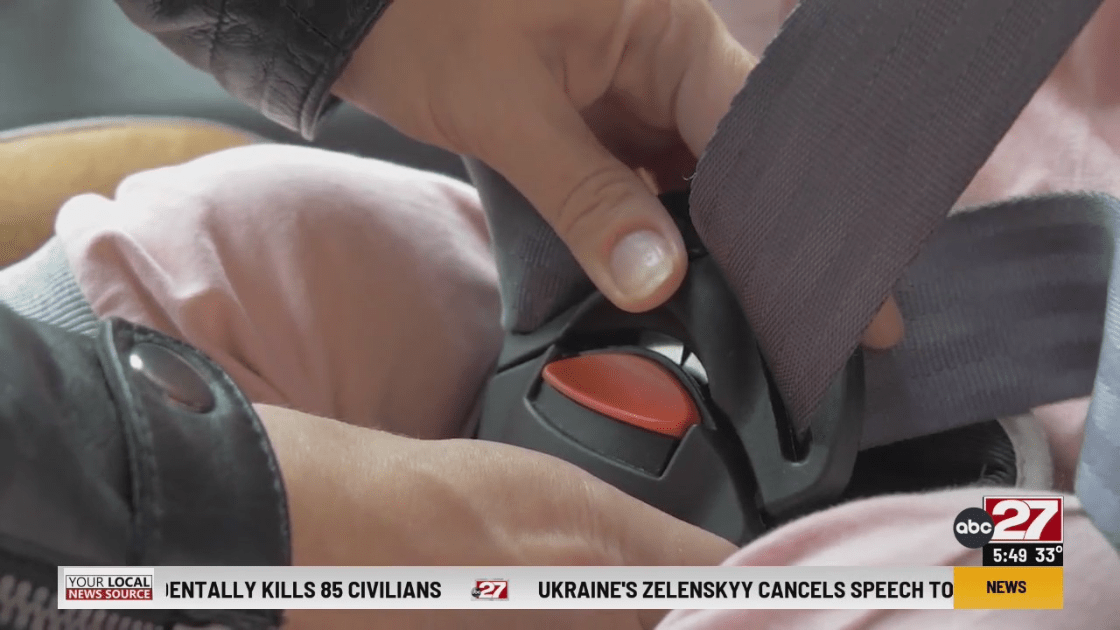
Shannon DePatto is a trauma prevention coordinator at Penn State Health. She inspects car seats for parents of newly-delivered babies at the hospital. And each month, she finds one or two that are counterfeit. She says it’s a trend that is definitely moving in the wrong direction.
“It sounds crazy but it’s out there, unfortunately,” DePatto said. “They’re being sold online. Families can purchase it and it looks and acts and seems like the real thing, but it’s unfortunately it’s not.”
The problem; these car seats don’t meet rigorous federal safety requirements.
“And unfortunately with these counterfeit car seats, they are not crash tested,” DePatto said. “There is no running data. There is no information available to provide a high level of safety in the event of a crash.”
The fake seats are being sold online, often at a deep discount. That’s the first red flag, according to PennDOT’s Fritzi Schreffler.
“If a deal looks too good to be true it probably really isn’t a good deal,” Schreffler said. “A car seat manufacturer and even a third party that’s selling a legitimate seat is not going to be knocking $200 off the price of that seat.”
To ensure a car seat is legitimate, make sure it has a five point safety harness and check for safety stickers, a registration card and manual. Also read reviews closely and try to buy seats in an actual store or directly from the manufacturer.
When in doubt, have the seat checked by a professional.
“Your child’s life should always be priceless to you,” Schreffler said. “What we do is free because it’s all about the safety of the kids. So have us take a look at it, even if it’s just for peace of mind.”
If you’d like to find a car set technician in your area, visit the Safe Kids website.
For more information about how to spot a counterfeit car seat, click here.
